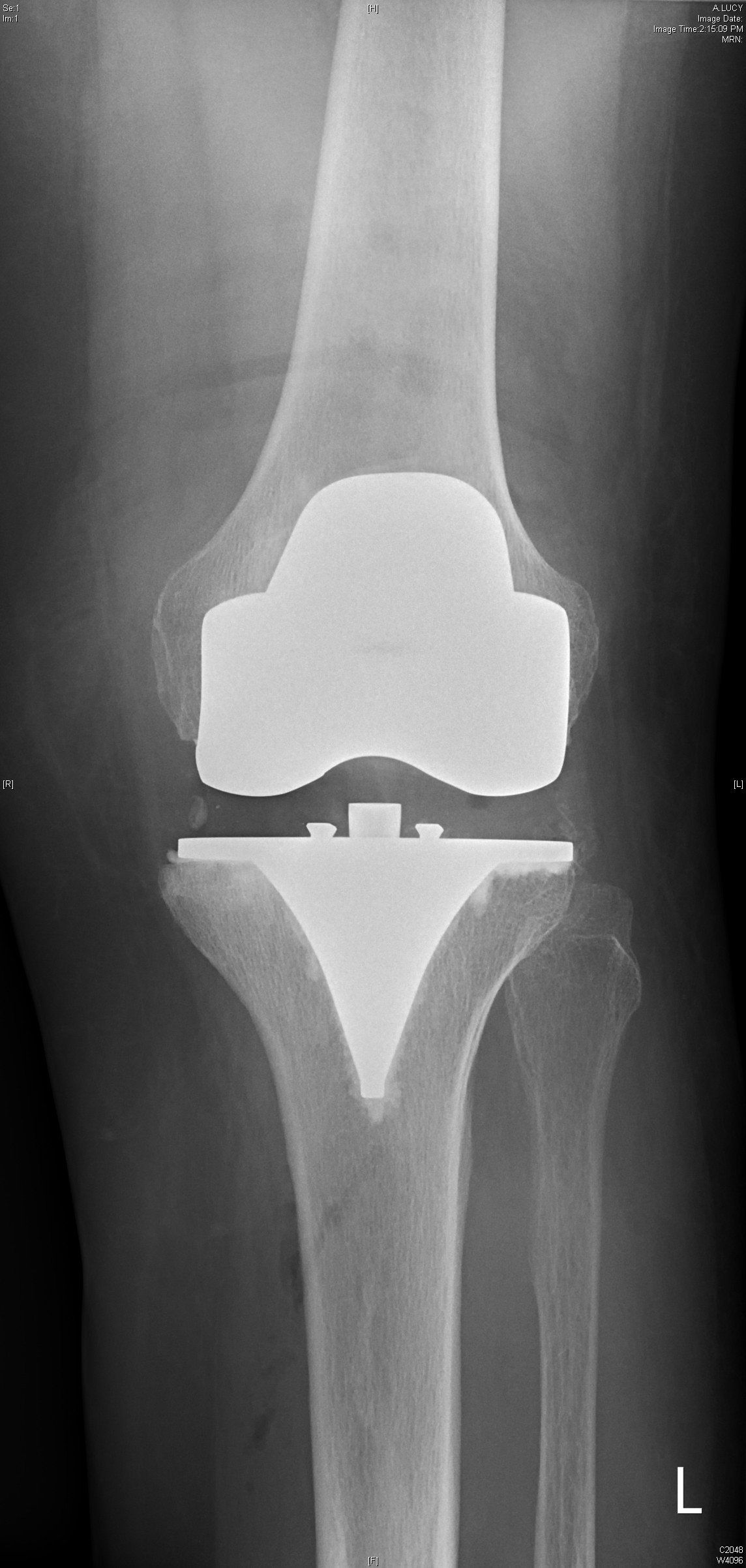Total Knee Replacement Surgery
What is a Total Knee Replacement
A Total Knee Replacement also referred to as a Total Knee Arthroplasty is an operation to replace all parts of a knee joint that is affected by arthritis.
The procedure is a quality of life operation and is a highly successful operation. Your new knee replacement can be expected to last for decades (91% are still functioning after just under 20 years).
Each knee is individual and knee replacements take this into account by having different sizes for your knee. If there is more than the usual amount of bone loss, sometimes extra pieces of metal or bone are added. Custom implants are occasionally required.
Total Knee Replacement surgery involves resurfacing the worn parts of the knee and replacing the arthritic knee joint with artificial metal (cobalt chrome and titanium) and a plastic (highly cross-linked polyethylene) replacement parts called the 'prostheses'.
These include replacing your knees elements with artificial knee joint components including:
- Remove the end of the femur (thigh bone) and replace it with an upper metal component shaped and sized to fit the end of the femur
- Remove the end of the tibia (shin bone) and replace with a flat metal tibial component made of metal alloys fixed to the bone
- Insert the plastic element between them that is designed to bear significant wear
- Replace the patella (knee cap) with a patellar button to resurface the back of your knee cap
The artificial knee joint is made from a surgical-grade metal alloy with a special wear resistant plastic insert.
Who are Candidates for Total Knee Replacement?
The procedure is usually recommended for patients who suffer from pain and loss of function from arthritis or other knee degeneration and have failed to achieve satisfactory results from other conservative or non-surgical methods of therapy.
Each patient is assessed individually but Total Knee Replacement candidature is far greater than partial knee replacement and can include candidates who are:
- Suffering Pain (pain while standing/walking or pain waking you at night)
- Restricted Mobility that interferes with daily life
- Stiffness and swelling
- Deformity (bow legs or knock knees)
These symptoms would usually have been present for many months or even years, often getting worse over time and are more common with older patients or severely arthritic patients
Benefits of Total Knee Replacement Surgery?
The decision to proceed with a Total Knee Replacement (TKR) is a cooperative one between you, your doctor, family and other medical professionals. The benefits following surgery are the relief of symptoms of arthritis listed above.
Knee Surgery Recommendation
Once your doctor and you have agreed on Knee Replacement Surgery your doctor will often discuss the options available and what the patient’s preferences are. These may include the:
- Specific surgery type. (Total Knee Replacement vs Partial Knee Replacement- if suitable)
- Knee implant (Cruciate retaining vs sacrificing vs posterior stabilised vs medial pivot; cemented or hybrid components)
- Surgical technique (Robotic assisted, Navigated, PSI- Patient Specific Instrumentation or conventional instruments; Mechanical Alignment vs Kinematic Alignment)
These recommendations and the ideal approach to the knee depends on the individual patient’s anatomy, and your doctor will advise you of the most appropriate knee replacement and surgical technique.
Our aim is to return patients to their previous activity level with a fully functioning pain-free knee joint.



